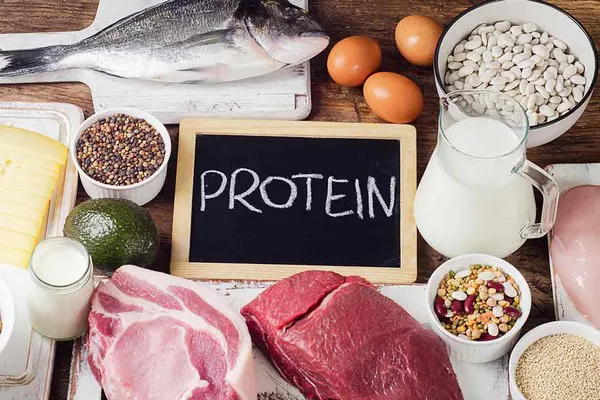Protein is an essential nutrient for human health, playing a critical role in various bodily functions. While meat has traditionally been considered the primary source of protein, there is a growing awareness of the protein-rich potential of vegetables. In this article, we’ll explore some of the vegetables that not only match but even surpass the protein content found in meat. From legumes to leafy greens, these plant-based powerhouses offer a diverse and sustainable way to meet your protein needs.
1. Spinach: The Green Protein Machine
Spinach, famously known as Popeye’s favorite, is a leafy green that packs a powerful protein punch. With approximately 2.9 grams of protein per 100 grams, spinach is an excellent source of plant-based protein. Additionally, it’s loaded with vitamins, minerals, and antioxidants, making it a nutritious choice for any diet. Whether you enjoy it in salads, smoothies, or sautéed dishes, spinach is a versatile and protein-rich vegetable.
2. Broccoli: A Protein-Packed Cruciferous Gem
Broccoli, a member of the cruciferous vegetable family, is celebrated for its health benefits, including its protein content. One cup of cooked broccoli provides about 2.6 grams of protein. Beyond protein, broccoli is rich in fiber, vitamins, and minerals, making it a nutritious addition to your meals. Its versatility allows you to enjoy it steamed, roasted, or added to stir-fries.
3. Peas: Tiny But Mighty Protein Pods
Peas, both green and yellow varieties, are tiny protein powerhouses. One cup of cooked peas contains approximately 8 grams of protein. Peas are also brimming with fiber and essential nutrients like vitamin K and vitamin C. Whether used as a side dish, blended into soups, or incorporated into pasta dishes, peas are a versatile and protein-rich vegetable.
4. Lentils: The Protein Hero of Legumes
Lentils, a type of legume, are celebrated for their impressive protein content. One cup of cooked lentils provides around 18 grams of protein, making them one of the richest plant-based protein sources available. They are also packed with fiber, iron, and other essential nutrients. Lentils can be used in a wide range of dishes, from soups and stews to salads and veggie burgers.
5. Chickpeas: Versatile and Protein-Rich
Chickpeas, also known as garbanzo beans, are renowned for their versatility and protein content. One cup of cooked chickpeas offers approximately 15 grams of protein. These legumes are a staple in many cuisines worldwide and can be used to create dishes like hummus, falafel, and curries. Chickpeas are also high in fiber and provide a variety of vitamins and minerals.
6. Quinoa: The Complete Protein Grain
Quinoa is often referred to as a “complete protein” because it contains all nine essential amino acids, making it an ideal choice for vegetarians and vegans. One cup of cooked quinoa provides around 8 grams of protein, along with fiber, vitamins, and minerals. Its nutty flavor and versatility make it a popular addition to salads, bowls, and side dishes.
7. Tofu: The Soybean Superstar
Tofu, a soy-based product, is a staple in plant-based diets and is celebrated for its protein content. One cup of firm tofu offers approximately 20 grams of protein. Tofu is incredibly versatile and can be used in a variety of savory and sweet dishes, from stir-fries to smoothies. It also absorbs the flavors of the ingredients it’s cooked with, making it a versatile culinary canvas.
8. Edamame: Immature Soybeans Packed with Protein
Edamame, young soybeans, are not only delicious but also rich in protein. One cup of cooked edamame contains roughly 17 grams of protein. These vibrant green beans are not only a protein source but also provide fiber, vitamins, and minerals. Edamame can be enjoyed as a snack, in salads, or as a side dish.
9. Brussels Sprouts: Mini Protein-Packed Cabbages
Brussels sprouts, often overlooked, are a source of plant-based protein and numerous health benefits. One cup of cooked Brussels sprouts offers about 4 grams of protein. Additionally, they are a great source of vitamins K and C, fiber, and antioxidants. Roasting Brussels sprouts brings out their natural sweetness and makes them a delightful side dish.
10. Kale: The Nutrient-Dense Green
Kale, a nutrient-dense leafy green, is celebrated for its protein content and overall health benefits. One cup of cooked kale provides approximately 2.5 grams of protein. Kale is also loaded with vitamins, especially vitamin K, and minerals. It’s a versatile ingredient that can be used in salads, smoothies, and soups, offering a nutrient boost to your meals.
Conclusion: Embracing Plant-Based Protein
Incorporating vegetables that are rich in protein into your diet offers numerous health benefits, from supporting muscle growth and repair to enhancing overall well-being. These plant-based protein sources not only rival meat in protein content but also provide a wide array of essential nutrients, fiber, and antioxidants. Whether you follow a vegetarian or omnivorous diet, adding these protein-packed vegetables to your meals can contribute to a healthier and more sustainable lifestyle. So, why not give them a try and explore the delicious world of plant-based protein?


